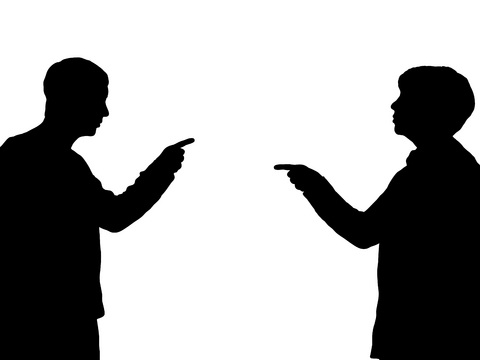Differences in Structure, Practice and Goals
Remember those presidential debates? You know the ones, where Donald Trump and Hillary Clinton were asked questions that they didn’t answer and instead talked about each other? Yeah, I tried to block those out of my mind, too. But, they happened and had at least some influence in deciding the next president of the United States of America. Think about that: three televised debates of limited duration, scope and depth influenced our election. Again. Since Kennedy vs. Nixon, televised debates have garnered more salience in deciding who holds public office. As if debate by itself was not bad enough.As conflict management specialists, we see debate as, shall we say, not the best method to resolving disputes or finding solutions to problems. This isn’t to say that debate is always bad. It does have some merits. It forces debating parties to hone their message, strengthen their argument and probe for weak spots in their opponent’s arguments. Those watching can consider points, counterpoints or the lack thereof. They could glean new information or perspective. In the end, debate could enhance knowledge of debated issues and shed inconsistencies. Except in today's world, it usually doesn't. Debate has several definitions, most of which describe it as a "discussion of opposing views" or "opposing arguments". That is, the focus is on the nature of opposition to determine which side is the stronger. And this seems to be widely accepted practice of debate. In most cases debate focuses on probing others’ statements for weak spots. It follows Sun Tzu: don't attack the strong points, attack the weak points. The aim is to win the battle, not to understand why there is a battle.We saw this in the presidential debates where the chief weak spots were the candidates themselves. The hierarchy of priorities went, from the top down: Attack opponent, attack opponent’s past, attack opponent’s message, attack opponent’s associates, attack opponent’s experience, promote own message, promote themselves, promote something else that sounds good, address the question, address the issue. That does not set up a clear, or even murky, road to solutions. In fact, there is no road. Consequently, important issues are not only ignored, they seem to be relegated to trivial nuances. And by example, this influences the public spheres of interaction: citizens engage in similar debates, thus getting everybody nowhere and increasing tension. In the end, Americans focus on probing for weak spots, attacking messengers and their message, and reshaping priorities instead of understanding issues and developing solutions. Winning the debate becomes the goal, improving and strengthening ourselves, each other and the country be damned.Dialogue is quite different, and more difficult. Within a debate, a strong, well-articulated argument with no weaknesses is avoided by the opponent, who then engages another tactic (e.g. attack the messenger). Within a dialogue, that same argument is greeted with “excellent point. How do we engage that?” Ideas are recognized and analyzed, not to solely find weaknesses, but to improve on them. Dialogue engages brainstorming, creative thinking, critical analysis and application.Because the goals of debate and dialogue are different, so, too are their procedures, expectations and outcomes. The goal of a debate is for participants to convince the audience to accept their argument over their opponent’s, usually by any means necessary. An argument in debate need not be complete, truthful, accurate, fair, relevant or logical. It just has to persuade. The topic of debate serves only as a launching pad from which the audience is launched far away.Dialogue aims for participants to discuss issues critically, openly and honestly with respect, civility and patience. If they are not actively looking for new viewpoints and ideas, then they are open to doing so. This means that contentious topics are not avoided, and polarized positions are not taken for granted. “That’s your opinion” becomes, “please help me understand why you think/believe that.” While participants should not aim to persuade others, they should be flexible in their stances, positions, and opinions. Understanding an issue and the various perspectives of that issue is paramount in dialogue. Differences do not equate to division. Disagreement offers opportunity. Dialogue participants understand that the best solutions can come from various viewpoints effectively engaged.The difficulty resides in the openness of participants. Disagreements tend to make people defensive and emotional. Animosity can creep in bringing resentment and distrust. Critical analysis can erode into cynical opposition, leading to debate. In many situations an impartial or neutral facilitator is needed to manage the dialogue. They are not there to direct conversation, but to keep it on track, civil and engaging. A facilitator will keep track of points of view, ideas, points of contention, areas of commonality and side issues that can affect the current topic. This takes practice and a good facilitator goes unnoticed during a dialogue or meeting, until afterwards.In dialogue, agreement is not necessarily the goal. Good conversation, challenged opinions and increased communication are the primary motives for engaging in dialogue. From there, participants can discover, create, improve and implement solutions. The biggest difference between debate in dialogue is that debate focuses on opinions, viewpoints, and arguments. Dialogue focuses on the challenges, problems, and issues that underscore those opinions, viewpoints and arguments. Debate seeks to win/persuade; Dialogue seeks to inform and solve.

